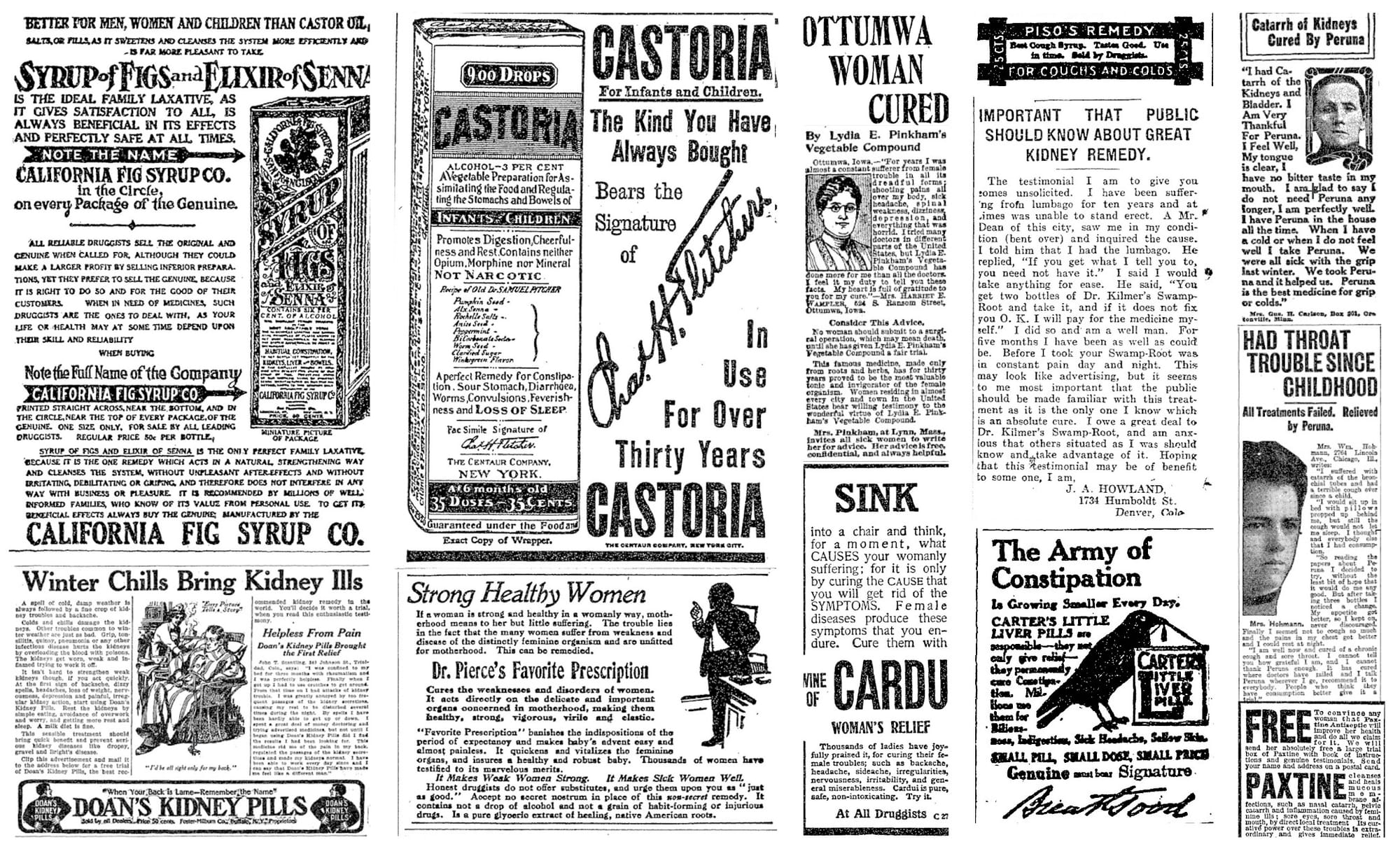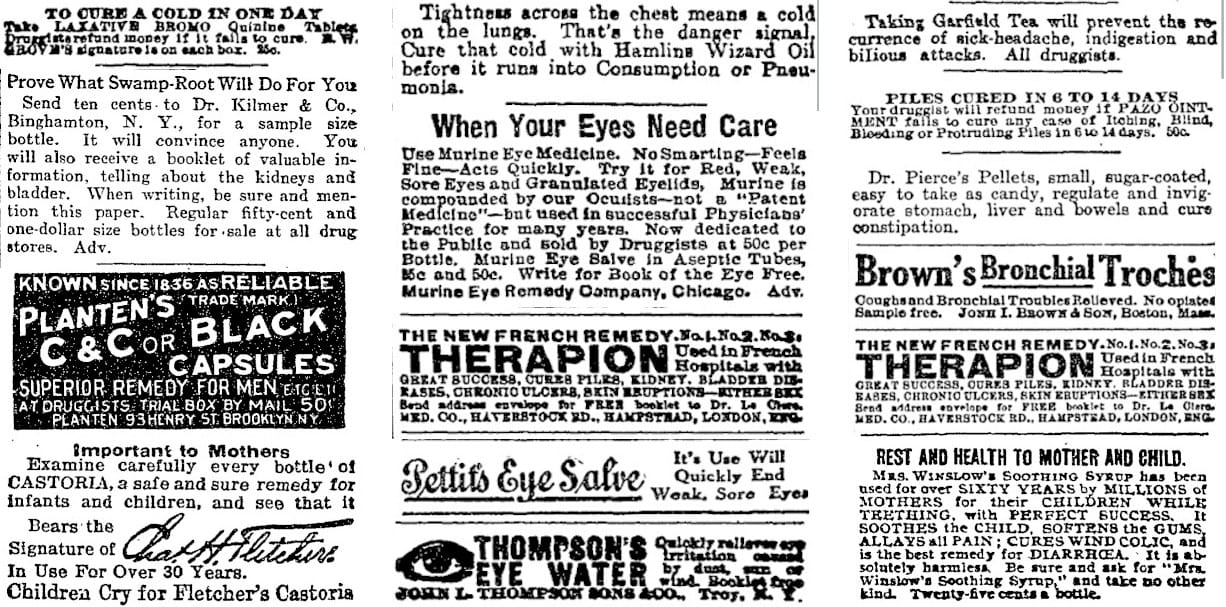In the early 20th century, the pages of the Transcript were overrun with advertisements for patent medicines. Many promised to cure vague disorders such as “kidney ills,” “liver laziness,” and “impoverished blood.”
In fact, some claimed to fix an impressive variety of ills, including “piles, kidney, bladder diseases, chronic ulcers, skin eruptions” (Therapion); “sour stomach, diarrhea, worms, convulsions, feverishness, and loss of sleep” (Castoria), and “female troubles such as…nervousness, irritability, and general miserableness” (Wine of Cardui).

Many of these panaceas included morphine, opium, and alcohol.
Congress complicated the patent medicine business with the 1906 Food and Drugs Act, which “prohibits interstate commerce in misbranded and adulterated foods, drinks and drugs.” In 1912, the Sherley Amendment prohibited “labeling medicines with false therapeutic claims intended to defraud the purchasers.”

One particularly notorious “medicine” was Mrs. Winslow’s Soothing Syrup, which contained morphine and proved fatal to many infants. This concoction was advertised regularly in the Transcript from 1880 – 1914.
Learn more about some of these medicines: Castoria, Wine of Cardui, Carter’s Little Liver Pills, Hood’s Sarsaperilla, Doctor Pierce’s Favorite Prescription, Cascarets, Hamlin’s Wizard Oil, Laxative Bromo Quinine Tablets, Dr. Kilmer’s Swamp Root, Peruna, Mrs. Winslow’s Soothing Syrup









